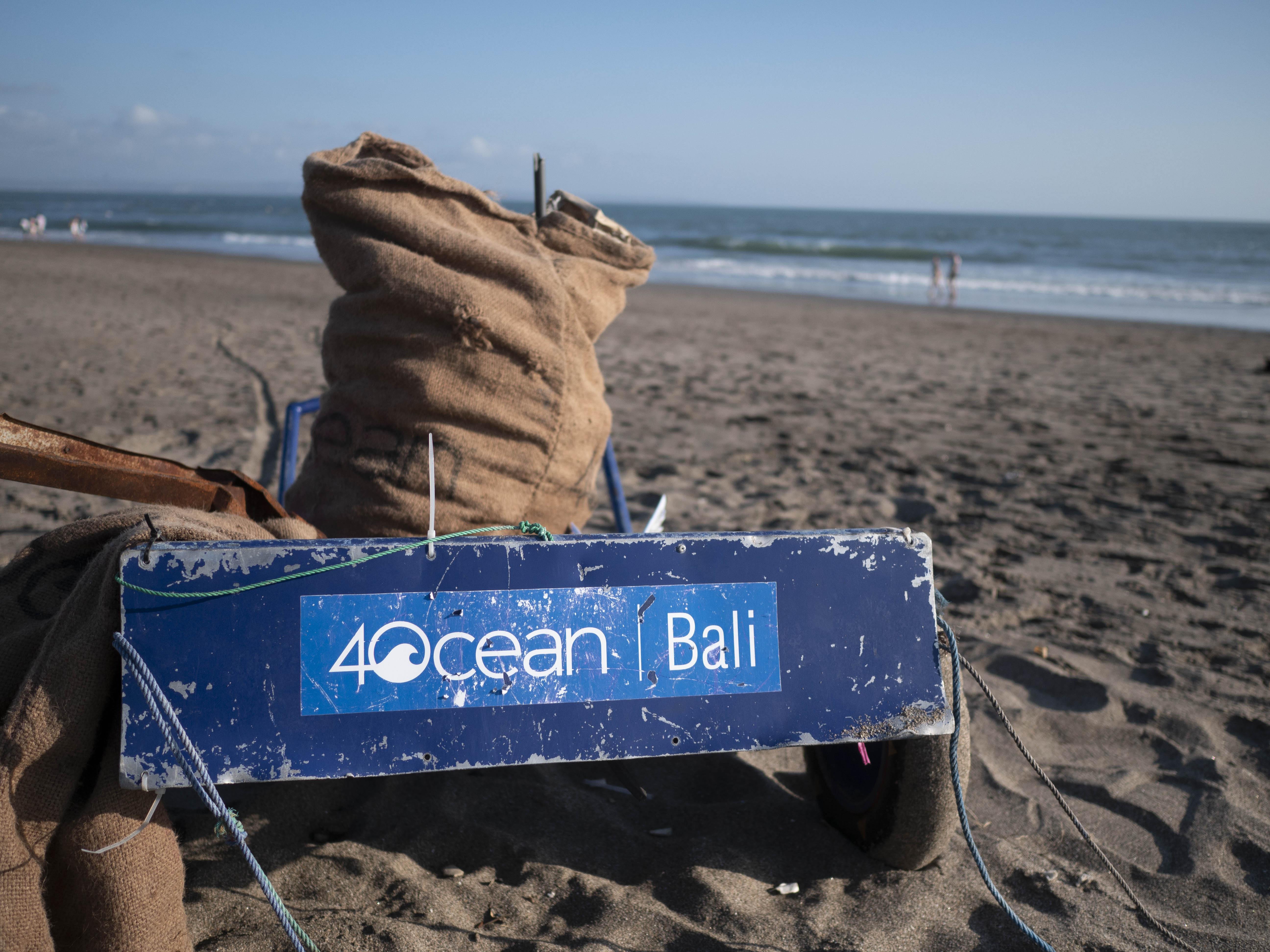5 MIN READ
3-11-2024
How A Small
Swap Saves
Sea Turtles
Mikaela Walsh, 4ocean Research Analyst
Are single-use plastic straws as harmful to the environment as people claim? Let’s deep dive into the facts!
Straws are used worldwide as a tool for beverages and convenience, but at what cost? They are fun and colorful, add a unique element to drinks, and are commonly used everywhere. Plastic straws contribute to an estimated 7% of the globe's total plastic waste. Single-use plastic straws are made from primarily polypropylene. Polypropylene is very prominent in plastic production for its cheap and moldable properties. These plastics have a low density, meaning they float on the ocean surface, commonly causing marine life to come into contact with them. These plastic straws can stay on earth’s surface for hundreds of years, and fragment into microplastic particles. When this happens, it can enter marine animals through ingestion seamlessly.
Plastic straws have caused traction across the globe for the dangers they hold to marine life. One of the most beloved marine animals is the sea turtle. A lot of traction hit the internet when boaters in Costa Rica surveyed Olive Ridley sea turtles in the ocean and witnessed something never seen before. They captured an Olive Ridley sea turtle and brought it onto the boat to track data when they noticed something stuck in its nostril. After further examination, they pulled out a ten-centimeter-long plastic straw lodged in the turtle's nose. The turtle was in great agony as the straw came out of the nose, and it is reasonable to say that this could have had harmful effects on the oxygen levels of this animal. Thankfully, after further examination, this turtle was cleared to safely enter the ocean. Regrettably, no one knows how long the straw was stuck in the nose and how many sea turtles this affects across the globe. Sea turtles face many challenges during survival, and plastic straws significantly harm marine animals.
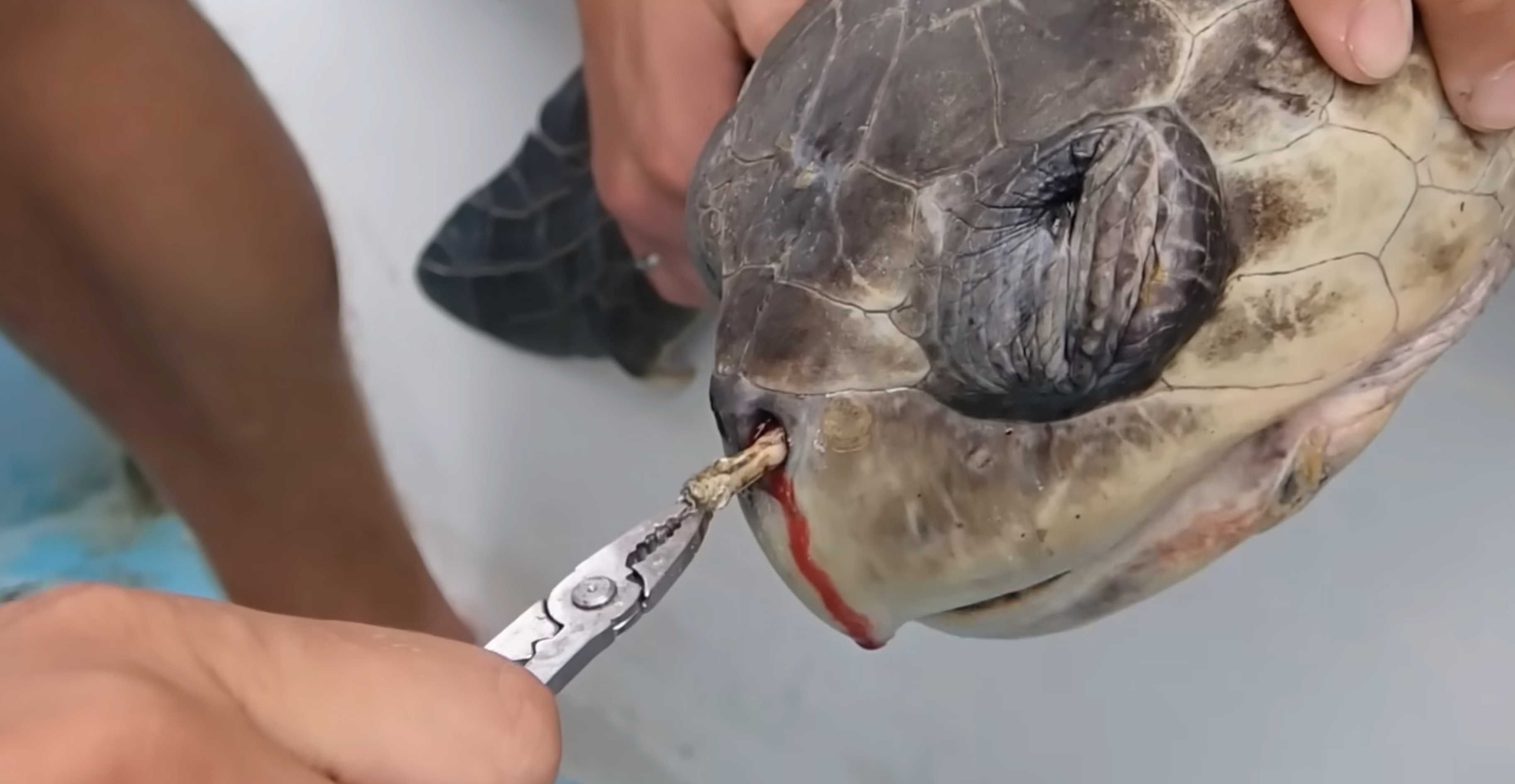
Many different animals are affected by plastic pollution worldwide. Another analyzed animal was the Magellanic Penguin, which lives along the Brazilian ocean. These animals are migratory birds that reside along the coastlines of South America. Researchers examined the intestinal tracts of deceased birds and found that a plastic straw had perforated the stomach. The plastic straw was not designed to be ingested by organisms and has sharp, long edges that can cut through the animals' intestines. Plastic debris does not contain nutritional value and will build up in organisms' stomachs, leading them to stop feeding and ultimately cause starvation. Plastic ingestion and entanglement lead to severe, sometimes even fatal, consequences.
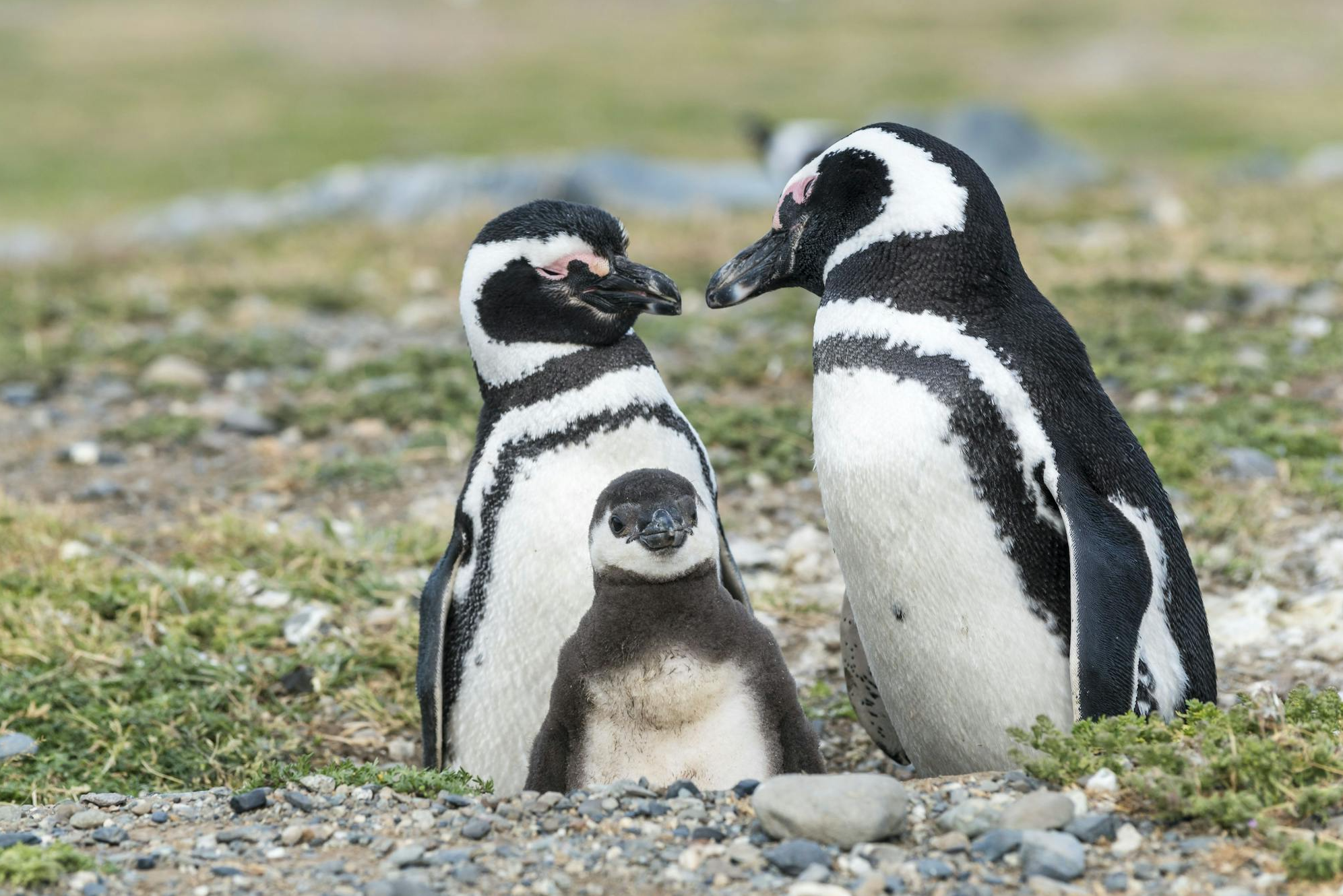
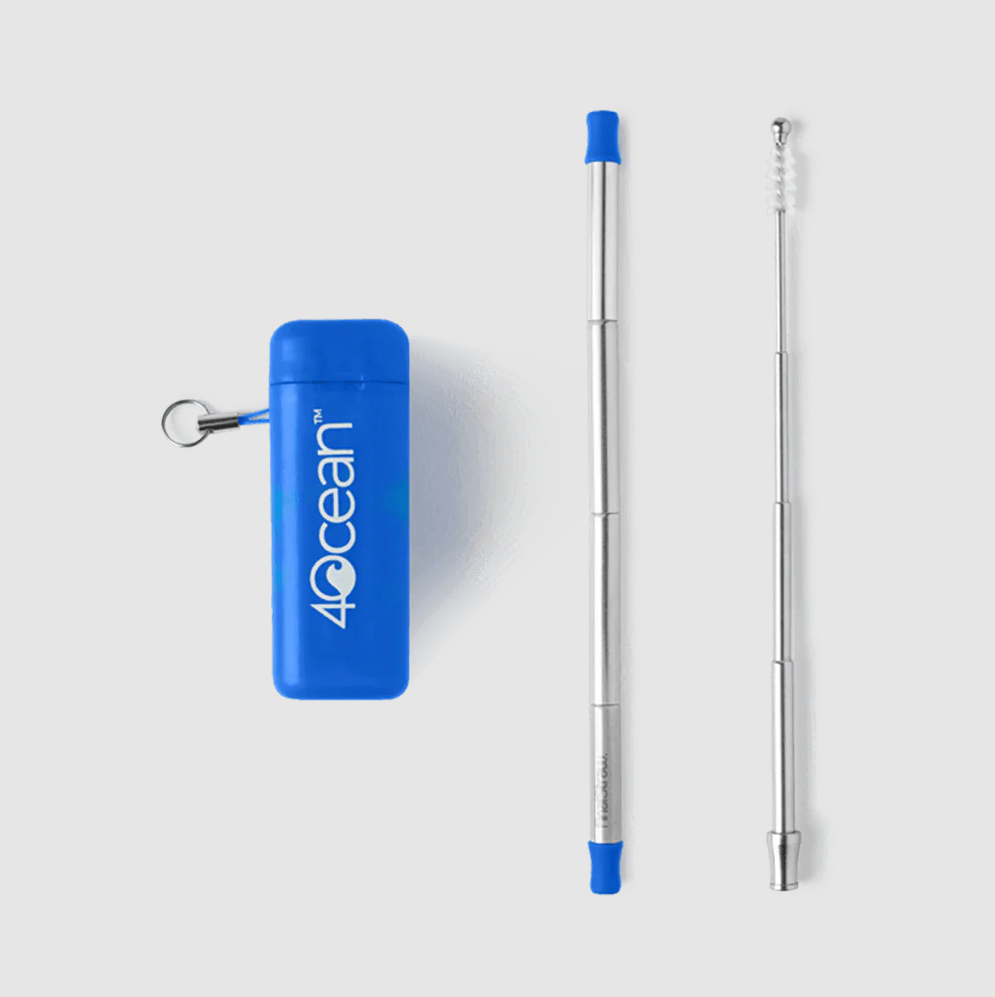
4ocean x FinalStraw Collapsible Travel
Straw 2.0
Shop now + Clean the Ocean Plastic straws are not recycled and end up in the ocean, where animals can ingest them, leading to a life of pain and discomfort. The properties and size of plastic straws allow them to float at the top of the waterways, leading animals to mistakenly ingest them instead of food. There are options for swapping single-use plastic straws for more environmentally friendly options.
- Paper straws: a better sustainable option for marine life because they break down and do not take decades to decay. Paper straws soak up the liquid as people drink them, which can be inconvenient, but it is still a safer option than single-use plastic straws.
- Reusable straws: are commonly made of glass, metal, or hard plastic but can last many years without discarding them after a single use.
- Biodegradable straws: Scientists are continuously working on creating the ideal biodegradable straw. Single-use biodegradable straws can decompose at a reasonable rate, unlike plastic, which fragments into microplastic.
Overall, there are more sustainable options available that can reduce the unnecessary use of single-use plastic straws.
Single-use plastic straws are very convenient but have harmful consequences for marine organisms. Straws are extremely damaging to the environment and are not a necessity. Single-use plastic can not be fully avoided in today's world, but reducing your single-use plastic consumption is imperative. There are ways you can positively impact the environment; even small ones make a huge difference. By refusing to receive a plastic straw from a store or restaurant, the environmental impact of plastic straws is profound. Refusing a straw can save a marine animal's life and decrease the single-use plastic consumption contribution. Is the plastic straw worth the expense of the harmful effects that aquatic life is struggling with?
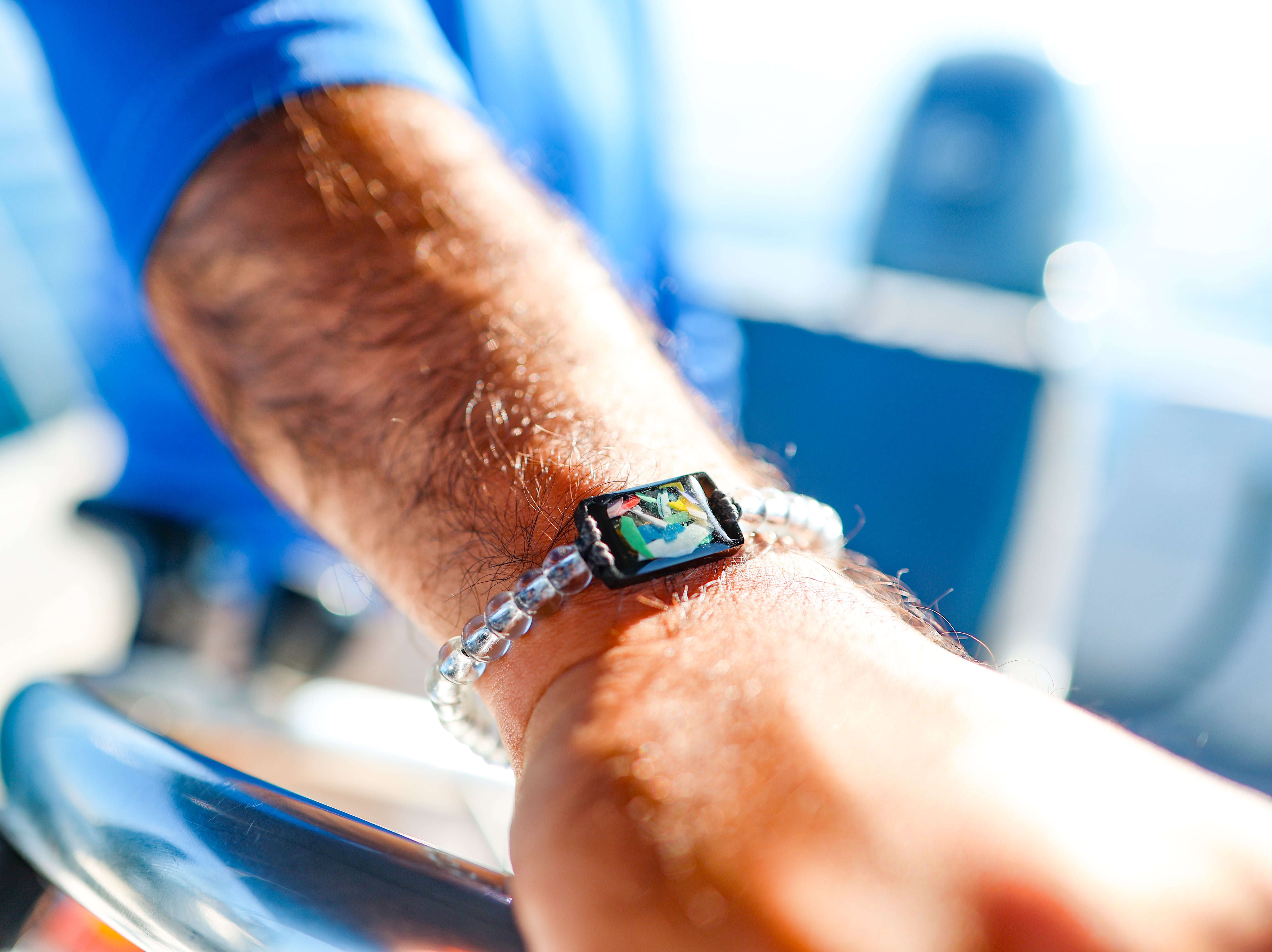
Last Straw Bracelet
Shop now + Clean the Ocean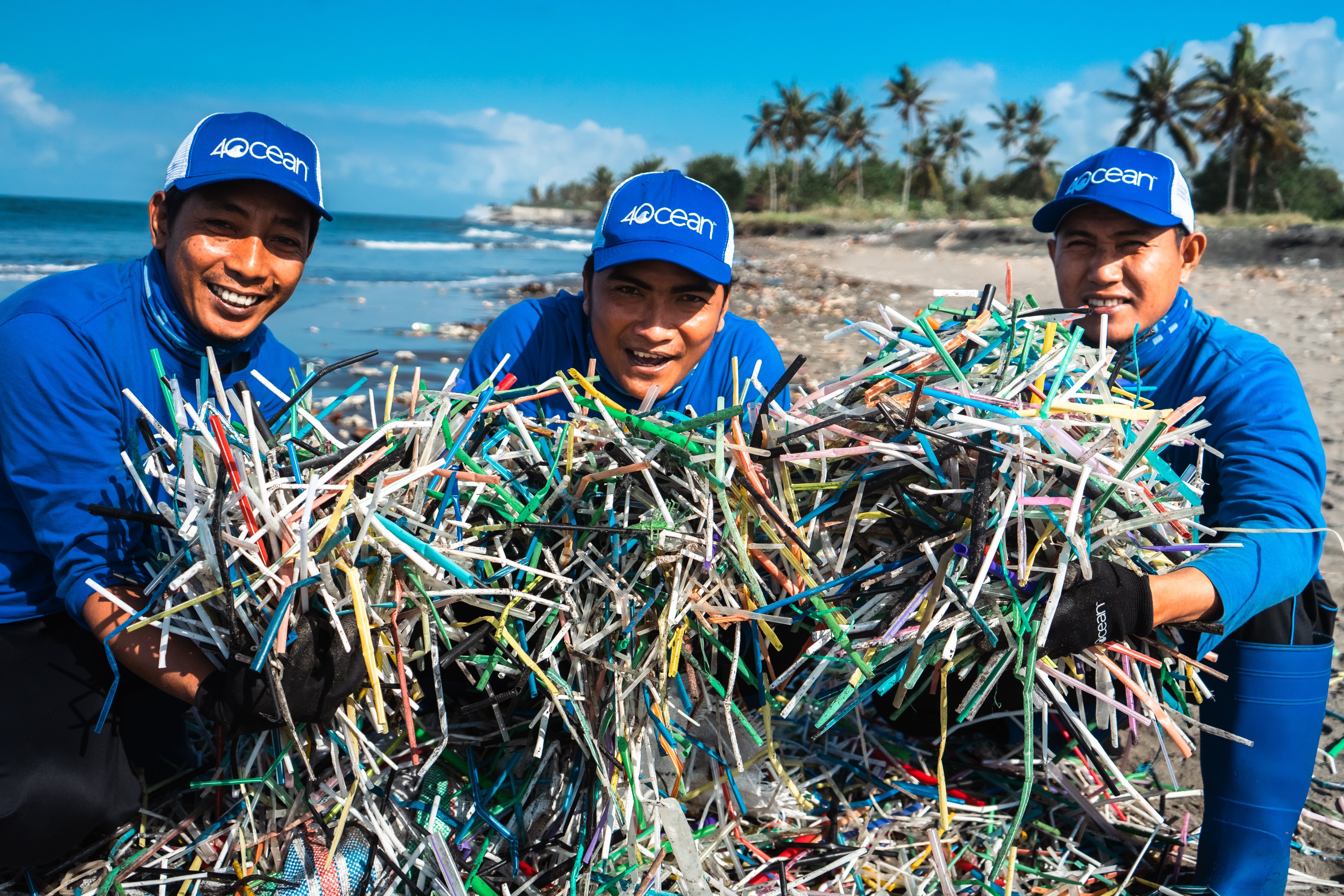
Products You May Like
You May Also Like
